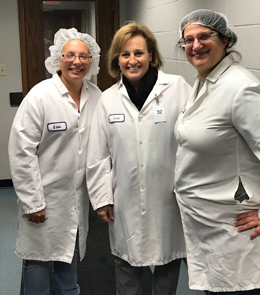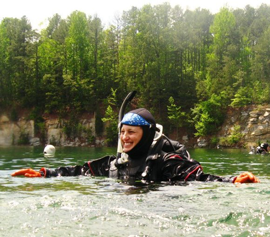
Written by: Lacie Dotterweich | November 21, 2019

Constance Cullman has officially taken the helm as president and CEO of the American Feed Industry Association. I had the opportunity to sit down and learn more about AFIA’s new chief executive.
Where did you grow up and how did you end up here?
Growing up in Ohio as number eight of nine children meant that you had to find your voice early on - but strangely, even with nine sets of hand, there were always chores to do on our cow-calf operation. If we weren’t busy enough, Dad always had fence post holes to dig! Putting myself through school at The Ohio State University to study agricultural economics for my bachelor’s and master’s degrees turned out to be not as difficult.
What do you see as the biggest challenge facing the animal food industry today?
Throughout my career, there have been many challenges facing food and agriculture, but the growing move away from a workable and predictable policy and regulatory environment, for both government regulations and policies created in the boardroom, has been one of the more difficult. This unpredictable environment affects our members and their freedom to operate. Specifically, the lengthening of regulatory processes that put our industry at a competitive disadvantage with competitors across the globe, while varying company food and sustainability policies introduce considerable unpredictability into the marketplace. Equally important is the unpredictable and ever-changing trade environment, which creates difficult-to-plan-for disruptions with long-term customers and suppliers and hinders the development of new markets.
On the flipside, what do you see as the biggest opportunity for the animal food industry?
My optimistic side views challenges and changes as vehicles for opportunities. They bring the opportunity to create a value proposition that aligns our industry practices and product delivery with consumers’ values. The rapid pace of innovation could allow us to meet specific consumer needs and demands through specialized product development, data management and traceability. Never before have we had so many tools at our disposal to meet the needs for quality, increased quantity and responsible resource utilization. At the same time, we must be cognizant of our role in communicating those attributes to end users. It will require strong engagement to assure the regulatory and communication strategies are in place to capitalize on these tools, but it is an exciting opportunity.
 Do you have a passion for any particular industry issue?
Do you have a passion for any particular industry issue?
I love to travel and those travels around our country and the globe ignited two passions that have never wavered during my career - conservation and trade. Hungry people and environmental degradation are frequent companions. The responsible use of our natural resources can and does coexist with the need to produce an increased quality and quantity of calories. Given the natural interrelationship of the environment and agriculture, I believe ongoing improvements in this area will be a constant companion for us. The efficient and predictable global exchange of our products and our customers’ products is not only necessary from a business management perspective, but also to efficiently utilize limited resources around the globe and most importantly, avoid severe malnutrition. Both of these issues are interwoven throughout our industry’s long-term priorities.
Outside of work, what are your favorite things to do?
Maybe it was due to growing up on a farm, but two things I enjoy doing are getting my hands dirty renovating houses – bringing life back into homes– and being back in nature. In my case, “nature” means being underwater and scuba diving at every opportunity. My dog, Josie, also keeps me humble!
Comments See our policy on comments